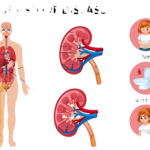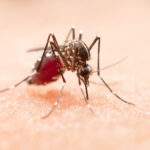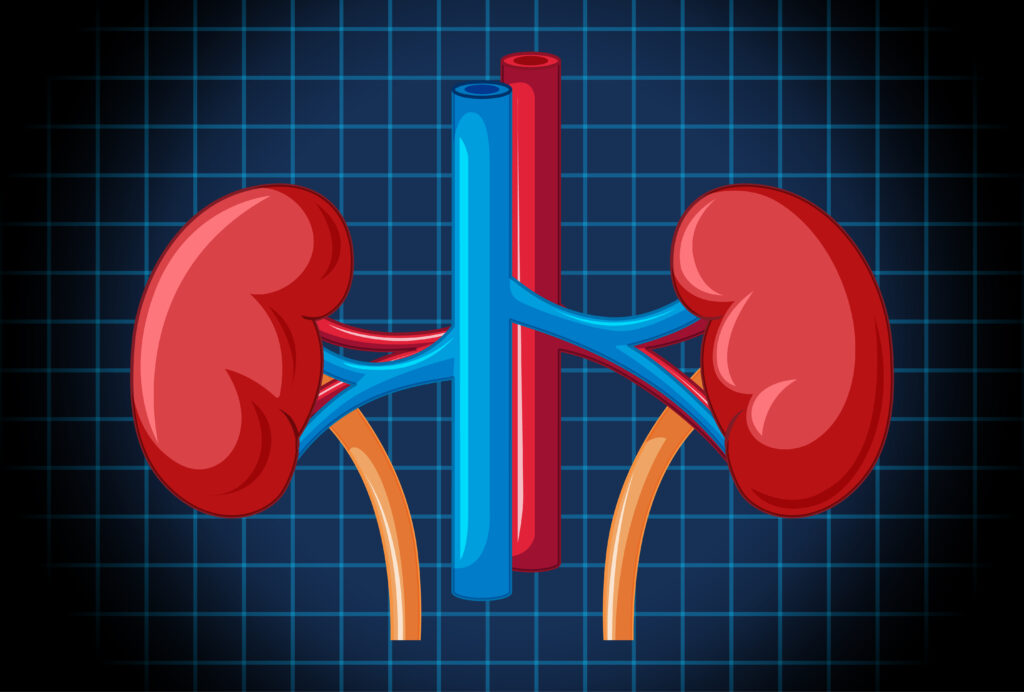
Fast Facts
Kidneys Filter 150 Quarts of Blood Daily: Each day, your kidneys filter approximately 150 quarts of blood to remove toxins and waste products
Most Kidney Disease Is Preventable: Around 70% of chronic kidney disease cases can be prevented through healthy lifestyle choices, such as proper hydration and a balanced diet
Dehydration Strains Kidneys: Regular dehydration can impair kidney function over time, emphasizing the importance of drinking enough water
Kidneys Regulate Blood Pressure: Kidneys play a vital role in blood pressure regulation and produce hormones essential for red blood cell production and bone health
1 in 10 Adults Has Kidney Disease: About 10% of adults globally are affected by chronic kidney disease, making it a significant health concern.
Overview
Our kidneys are often taken for granted, but these two small organs perform incredible tasks essential to our overall health. Located just below the rib cage on either side of the spine, the kidneys are responsible for maintaining fluid and electrolyte balance, filtering waste from the blood, regulating blood pressure, producing hormones, and even supporting bone health by activating vitamin D. Yet, despite their importance, kidney disease is alarmingly common and often silent in its early stages.
In this in-depth guide, we’ll explore the essential aspects of kidney health, why it matters, and actionable steps you can take to ensure your kidneys remain strong and functional throughout your life. From understanding how your kidneys work to adopting lifestyle changes that can prevent common kidney ailments, this comprehensive article will give you the tools and knowledge to support your kidney health
Understanding Kidney Health
Before diving into specific tips for kidney health, it’s essential to understand the kidneys’ key functions and why they are so crucial to our well-being
The kidneys have several roles that help keep the body’s internal environment stable:
- Waste Filtration: Kidneys filter about 150 quarts of blood daily to remove waste and excess fluid, which then becomes urine.
- Balancing Electrolytes: They maintain balanced levels of essential minerals such as potassium, sodium, and calcium.
- Blood Pressure Regulation: Kidneys help regulate blood pressure by producing the enzyme renin and controlling blood volume.
- Hormone Production: Kidneys produce hormones like erythropoietin, which stimulates red blood cell production, and calcitriol, the active form of vitamin D
Related : Why Sitting Too Much Is Bad for Your Health
Without properly functioning kidneys, waste and excess fluids can build up in the body, leading to potentially life-threatening conditions.
Common Risks to Kidney Health
Kidneys can be affected by a variety of factors, leading to acute or chronic kidney disease. The most common risks include:
- Diabetes: High blood sugar can damage the blood vessels in the kidneys, leading to diabetic kidney disease.
- High Blood Pressure: Prolonged high blood pressure can damage kidney blood vessels.
- Obesity: Excess weight strains the kidneys and can increase the risk of both diabetes and high blood pressure.
- Smoking and Excessive Alcohol Consumption: Both can impair kidney function and increase the risk of kidney disease.
- Family History: Genetics can also play a role in the likelihood of developing certain kidney conditions, such as polycystic kidney disease.
12 Proven Ways to Keep Your Kidneys Healthy
Related : Eating Right to Prevent Heart Disease
To support kidney health and prevent disease, there are specific lifestyle habits and practices to adopt. Let’s take a closer look at each one.
Maintain an Active Lifestyle and Healthy Weight
Physical activity isn’t just good for your heart and muscles; it’s also beneficial for your kidneys. Regular exercise can help regulate blood pressure, reduce the risk of diabetes, and maintain a healthy weight—all of which are critical to kidney health
- Aim for at least 30 minutes of moderate exercise, like walking, swimming, or cycling, five days a week.
- Incorporate a mix of cardio and strength training to maximize health benefits.
- Start small if you’re new to exercise and gradually increase the intensity and duration over time.
- Maintaining a healthy weight reduces the risk of conditions that strain the kidneys, such as high blood pressure and obesity-related kidney disease.
Manage Blood Sugar Levels
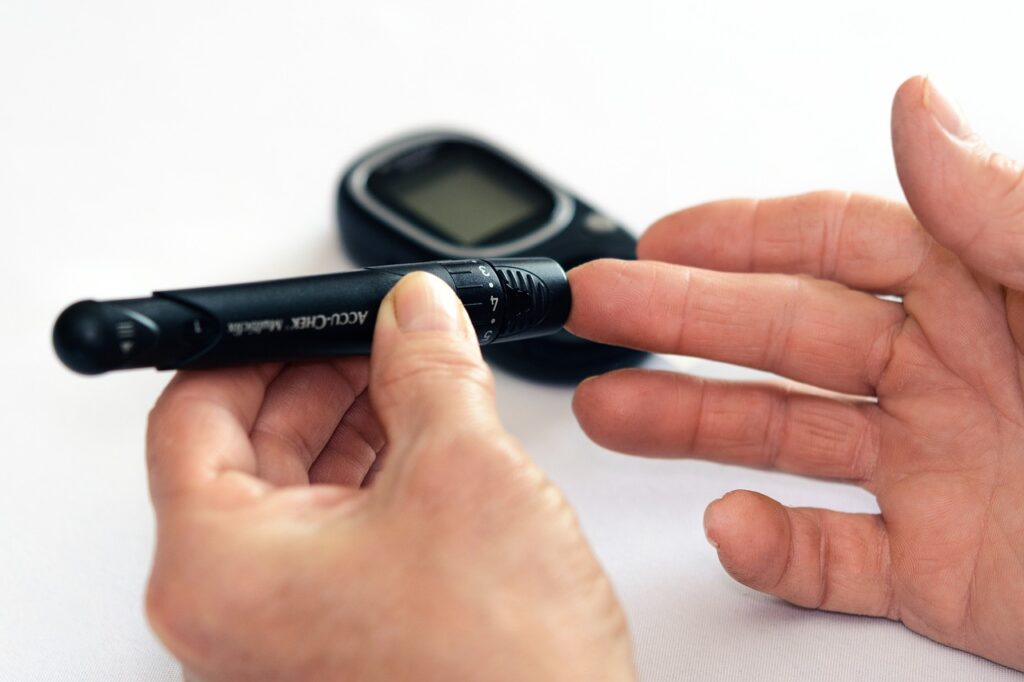
High blood sugar is particularly damaging to the kidneys. For individuals with diabetes, managing blood sugar levels is crucial for preventing diabetic nephropathy, a type of kidney disease
Related : Simple Steps to Boost Bone Health
- Monitor blood sugar levels regularly and work with your healthcare provider to stay within a healthy range.
- Follow a balanced diet with low sugar intake, focusing on complex carbohydrates like whole grains and avoiding refined sugars.
- Incorporate regular physical activity to improve insulin sensitivity.
- If you are prediabetic or have a family history of diabetes, regular screenings can help you stay ahead of potential complications.
Control Blood Pressure
Consistently high blood pressure damages the blood vessels in the kidneys over time, reducing their ability to filter blood effectively. Maintaining healthy blood pressure is one of the most effective ways to prevent kidney damage
- Reduce salt intake by avoiding processed foods and using herbs and spices to flavor your meals.
- Limit alcohol and caffeine intake, both of which can raise blood pressure.
- Manage stress through practices like meditation, deep breathing, or yoga.
- Consult your doctor about blood pressure medications if lifestyle adjustments alone are not sufficient.
Follow a Kidney-Friendly Diet
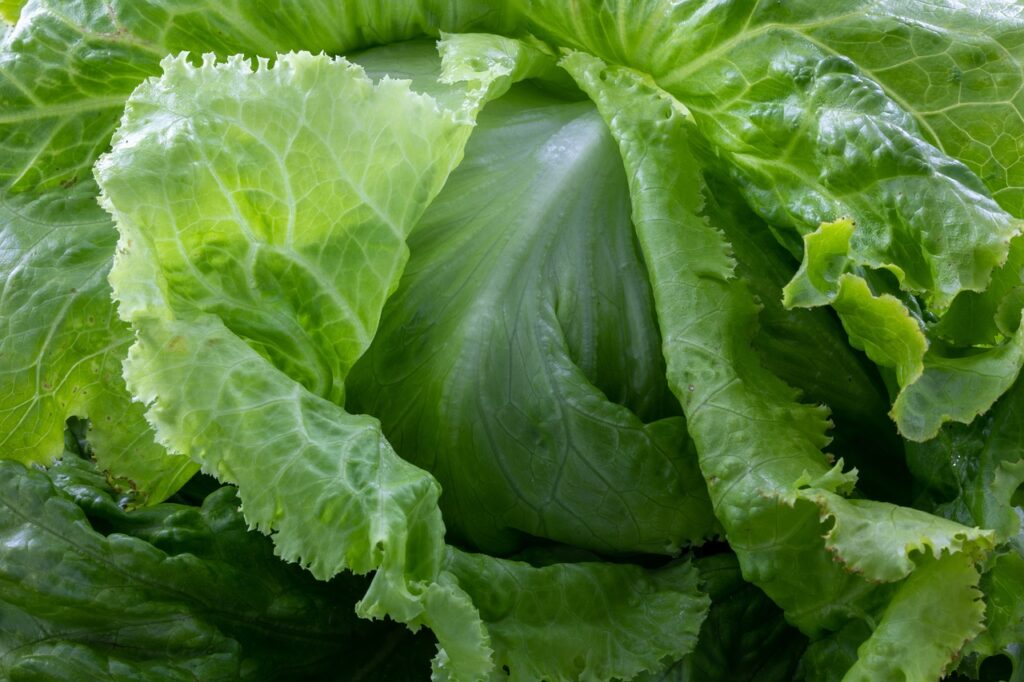
A kidney-friendly diet is low in sodium, rich in fruits, vegetables, and whole grains, and balanced in protein. Certain foods are especially beneficial for the kidneys
Related : Cold vs. Flu: to Symptoms, Causes, Treatments, and Prevention
- Leafy Greens: Spinach, kale, and other greens are nutrient-rich but should be consumed in moderation if you’re at risk of kidney stones.
- Berries: Blueberries, strawberries, and raspberries are low in potassium and packed with antioxidants.
- Fish: Rich in omega-3 fatty acids, which can reduce inflammation and lower blood pressure.
- Whole Grains: Such as oats, quinoa, and brown rice, provide sustained energy without spiking blood sugar.
Foods to Avoid
- Processed meats (like bacon and sausage) are high in salt and preservatives
- Foods high in phosphorus (like processed cheese and soda) can strain the kidneys over time.
- Excessive animal protein, particularly red meat, can increase the risk of kidney stones.
- Eating a diet rich in unprocessed foods and low in added salt helps reduce kidney strain and can improve overall health
Related : Home Remedies for Vertigo: Natural Ways to Relieve Symptoms and Restore Balance
Stay Hydrated – But Don’t Overdo It
Proper hydration is essential for kidney function because it helps flush toxins from the body. However, excessive fluid intake can lead to kidney stress, particularly for people with existing kidney conditions
- Aim for 1.5 to 2 liters of water daily, unless your healthcare provider advises otherwise.
- Drink more water during hot weather, after exercise, or if you’re experiencing illness that causes dehydration.
- Monitor the color of your urine; light yellow is generally a sign of good hydration.
Avoid Smoking and Limit Alcohol Intake

Smoking restricts blood flow to the kidneys and can worsen existing kidney conditions. Additionally, smoking raises the risk of kidney cancer. Limiting or avoiding alcohol is also advisable, as excessive alcohol intake can cause dehydration and increase blood pressure, both of which strain the kidneys
- Seek support from a healthcare provider, consider counseling, or join a support group to aid in quitting.
- Use nicotine replacement products if necessary to help manage cravings.
- Set realistic goals and track your progress to stay motivated
Related : Protecting Your Kidneys Conditions That Affect Kidney Health
Limit OTC Painkillers
Nonsteroidal anti-inflammatory drugs (NSAIDs) like ibuprofen and naproxen, while effective for pain relief, can harm the kidneys if used excessively. Long-term or high-dose use of these medications may lead to chronic kidney damage
- Use OTC painkillers only as directed and consult your doctor for chronic pain management.
- Explore natural pain relief methods, like hot/cold therapy, physical therapy, or gentle stretching exercises.
- Speak with a healthcare provider about alternative medications if you have pre-existing kidney conditions.
Get Regular Kidney Function Screenings
If you’re at risk for kidney disease due to factors like diabetes, high blood pressure, or a family history of kidney problems, regular kidney screenings can help detect early signs of damage. Tests like the Glomerular Filtration Rate (GFR) and urine analysis can identify issues before they progress
Related : 10 Best Foods to Hair Health and Strength
Recognize Early Warning Signs of Kidney Issues
Understanding the early signs of kidney problems can help you take action before they worsen. Kidney disease often progresses quietly, with symptoms only becoming noticeable in advanced stages. However, some early warning signs can indicate that your kidneys may need extra care
- Fatigue and Low Energy: If kidneys aren’t filtering toxins effectively, it can lead to fatigue and difficulty concentrating.
- Changes in Urination: Noticeable changes, like increased or decreased frequency, dark-colored urine, or foamy urine, can indicate kidney issues.
- Swelling in the Feet and Ankles: Poor kidney function can lead to sodium retention, causing swelling in extremities.
- Shortness of Breath: When fluid builds up due to poor kidney function, it can lead to difficulty breathing, especially in more advanced stages.
If you experience any of these symptoms, it’s essential to consult a healthcare provider for evaluation. Catching kidney issues early can often lead to better management and slow progression
Manage Chronic Conditions with Professional Support
Chronic conditions like diabetes, high blood pressure, and heart disease can all contribute to kidney damage over time. Managing these conditions with the help of healthcare providers is one of the most effective ways to protect your kidneys
Related : How to Lose Belly Fat 6 Tips for a Healthier You
- Stay on Top of Medications: Take prescribed medications consistently and follow dosing guidelines closely.
- Regular Check-ups: Schedule regular check-ups to monitor blood pressure, blood sugar levels, and kidney function.
- Seek Professional Guidance: A registered dietitian or endocrinologist can offer personalized guidance for managing conditions like diabetes or hypertension, which can help in maintaining kidney health.
Proactive management of chronic conditions can significantly reduce the risk of kidney damage and support overall wellness.
Practice Stress Management Techniques
Chronic stress can negatively affect blood pressure and contribute to unhealthy lifestyle choices, which indirectly affect kidney health. Learning to manage stress not only benefits mental health but also plays a role in reducing risks related to kidney disease.
- Mindfulness and Meditation: Practicing mindfulness or guided meditation can reduce stress and help regulate blood pressure
Related : Top 7 Health Benefits and Uses of Cayenne Pepper
- Physical Activity: Exercise is a proven way to relieve stress and improve mood.
- Adequate Sleep: Quality sleep supports your body’s ability to handle stress and keeps your immune system functioning optimally.
Consider incorporating breathing exercises or progressive muscle relaxation into your routine for added benefits.
Use Caution with Supplements and Herbal Remedies

While supplements and herbal remedies may offer health benefits, some can be harmful to the kidneys, especially when used in excess or without medical advice. Ingredients like creatine, high doses of vitamin C, and certain herbal products (such as licorice root) can place additional strain on the kidneys
- Consult Your Doctor: Always speak to a healthcare provider before starting any new supplement, especially if you have existing kidney concerns.
- Follow Recommended Dosages: Taking more than the recommended dose of any supplement can harm kidney health.
- Avoid Unknown Herbs: Some herbal remedies may not be well-regulated and could contain kidney-damaging compounds
Related : 20 Best Low-Carb Fruits and vegetables to Enjoy on a Keto Diet
It’s wise to prioritize a balanced diet as the primary source of vitamins and minerals. Supplements should complement—not replace—nutritional intake from whole foods
The Importance of Regular Kidney Function Tests
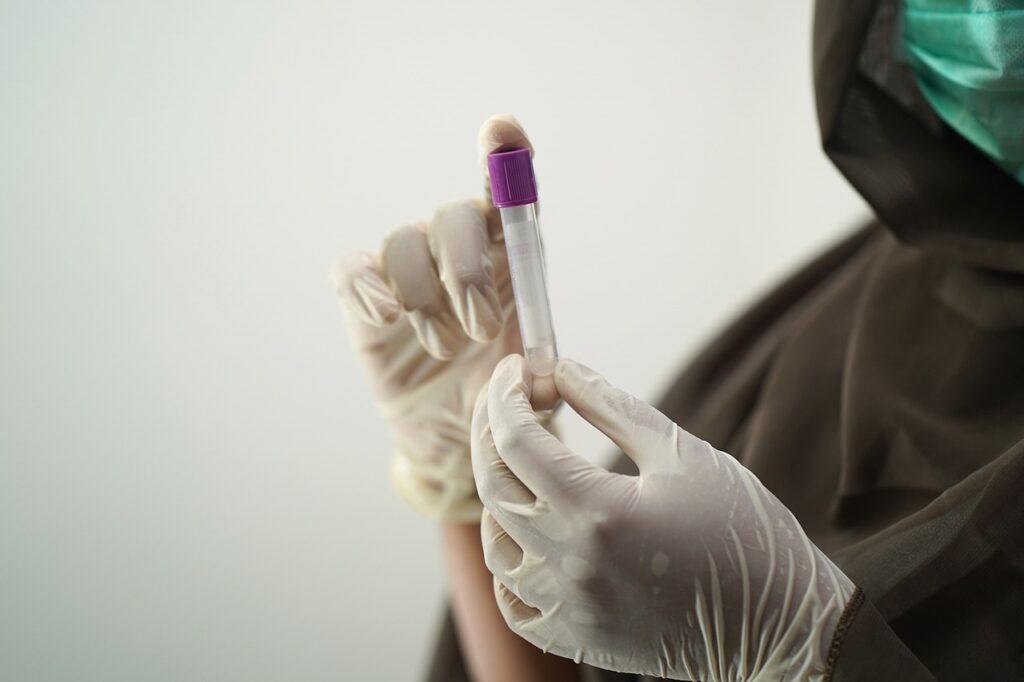
For those at higher risk of kidney disease, regular screenings are essential. Tests like serum creatinine, Glomerular Filtration Rate (GFR), and urine albumin-to-creatinine ratio (UACR) provide insights into kidney health. Early detection of any abnormal values allows for timely intervention, which can help slow disease progression
- Serum Creatinine Test: Measures creatinine levels in the blood; elevated levels can indicate impaired kidney function.
- GFR Test: Estimates how well your kidneys are filtering blood. A lower GFR score may suggest kidney disease.
- Urine Tests: Tests like UACR measure protein levels in the urine, which, when elevated, can signal kidney issues.
These tests are straightforward and can be part of a routine health check-up, especially if you have risk factors for kidney disease
Embracing a Kidney-Friendly Lifestyle
Living a lifestyle that supports kidney health doesn’t require drastic changes but rather mindful choices that add up over time. Integrating balanced nutrition, regular physical activity, stress management, and regular medical check-ups can make a world of difference
Related : The Best Supplements to Support Brain Health
- Reduce Processed Foods: High in salt, sugar, and unhealthy fats, processed foods are hard on your kidneys.
- Limit Alcohol and Quit Smoking: Both habits can lead to blood pressure issues and kidney strain.
- Stay Active and Hydrated: Moving your body and drinking water are foundational habits that promote kidney health
The Takeaway
Your kidneys are incredible organs that support nearly every aspect of your body’s health, from detoxification to hormone production. By implementing the strategies outlined in this guide, you can take proactive steps to protect your kidneys from damage and support their function over a lifetime.
Remember, small changes can have big impacts. Whether you’re choosing kidney-friendly foods, staying active, or keeping an eye on blood pressure, each action brings you closer to maintaining optimal kidney health. If you’re at high risk for kidney disease or have existing conditions that could affect your kidneys, working closely with a healthcare provider can provide an added layer of protection
Related : Heart-Healthy Snacks and Drinks
Kidney health is a lifelong commitment, and it’s one well worth making. Protecting your kidneys helps ensure that your body’s filtration system remains strong, supporting your overall health and vitality for years to come
Frequently Asked Questions
What are the main functions of the kidneys? The kidneys filter waste products and excess fluids from the blood, regulate blood pressure, balance electrolytes, and produce hormones necessary for bone health and red blood cell production.
How much water should I drink daily for optimal kidney health? While individual needs vary, most people are advised to drink around 8 glasses (about 2 liters) of water per day. Staying hydrated helps kidneys flush out toxins but avoid excessive intake as it can strain the kidneys.
Are there specific foods that promote kidney health? Yes, foods such as berries, leafy greens, apples, onions, garlic, and fish rich in omega-3s support kidney health. Avoid foods high in salt, potassium, or phosphorus if you have kidney concerns, and consult with a healthcare provider or dietitian.
What are some early signs of kidney problems? Early signs include fatigue, changes in urination, swelling in feet and ankles, and difficulty breathing. If you experience these symptoms, consult a healthcare provider for evaluation
How often should I get my kidneys checked? For those with risk factors like diabetes, high blood pressure, or a family history of kidney disease, regular kidney function tests are recommended—often annually. Consult your doctor to determine the frequency based on your health profile.
Can supplements harm my kidneys? Certain supplements, especially in high doses, can strain or harm the kidneys. Avoid taking large amounts of vitamin C, creatine, or unregulated herbal supplements. Always consult a healthcare provider before starting any new supplements






